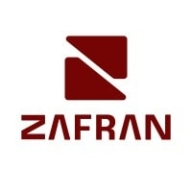


Rapid7 Metasploit and SentinelOne Singularity Identity compete in the cybersecurity space. Rapid7 Metasploit has an edge in penetration testing due to its open-source platform and extensive exploit database. Meanwhile, SentinelOne excels in identity protection through AI-based behavioral analysis and advanced threat detection.
Features: Rapid7 Metasploit is renowned for its exploitation capabilities, open-source platform, and integration with Nmap and InsightVM. It boasts a large number of active modules and a comprehensive exploit database, making it advantageous for penetration testers. SentinelOne Singularity Identity offers advanced endpoint security with AI-based behavioral analysis, strong threat detection, and identity protection. Its dynamic threat detection is a key feature.
Room for Improvement: Rapid7 Metasploit needs more timely updates on exploits and faces high resource utilization on older systems. Its GUI could be more user-friendly to attract a wider audience. SentinelOne Singularity Identity could enhance its endpoint management and expand web filtering capabilities, while being mindful of cloud deployment costs and comprehensive license management.
Ease of Deployment and Customer Service: Rapid7 Metasploit offers flexible deployment options suited for advanced technical environments but lacks direct support in its community edition. SentinelOne Singularity Identity relies on public cloud deployment with more responsive customer service, though it could benefit from improved first-level support and easier deployment processes.
Pricing and ROI: Rapid7 Metasploit is a cost-effective solution with both free and premium options, offering rapid ROI, especially for those new to the platform. Supplemental integration costs may arise for deeper functionalities. SentinelOne Singularity Identity, while often seen as more expensive, provides valuable features that justify its investment, comparable to competitors, offering significant value and return on investment.
| Product | Market Share (%) |
|---|---|
| SentinelOne Singularity Identity | 0.7% |
| Zafran Security | 1.0% |
| Rapid7 Metasploit | 1.2% |
| Other | 97.1% |



| Company Size | Count |
|---|---|
| Small Business | 9 |
| Midsize Enterprise | 4 |
| Large Enterprise | 11 |
| Company Size | Count |
|---|---|
| Small Business | 4 |
| Midsize Enterprise | 5 |
| Large Enterprise | 13 |
Zafran Security integrates with existing security tools to identify and mitigate vulnerabilities effectively, proving that most critical vulnerabilities are not exploitable, optimizing threat management.
Zafran Security introduces an innovative operating model for managing security threats and vulnerabilities. By leveraging the threat exposure management platform, it pinpoints and prioritizes exploitable vulnerabilities, reducing risk through immediate remediation. This platform enhances your hybrid cloud security by normalizing vulnerability signals and integrating specific IT context data, such as CVE runtime presence and internet asset reachability, into its analysis. No longer reliant on patch windows, Zafran Security allows you to manage risks actively.
What are the key features of Zafran Security?
What benefits can users expect from Zafran Security?
In industries where security is paramount, such as finance and healthcare, Zafran Security provides invaluable protection by ensuring that only exploitable vulnerabilities are addressed. It allows entities to maintain robust security measures while allocating resources efficiently, fitting seamlessly into existing security strategies.
Attackers are always developing new exploits and attack methods—Metasploit penetration testing software helps you use their own weapons against them. Utilizing an ever-growing database of exploits, you can safely simulate real-world attacks on your network to train your security team to spot and stop the real thing.
Singularity Identity, a component of the Singularity platform, provides threat detection & response (ITDR) capabilities to defend Active Directory and domain-joined endpoints in real-time from adversaries aiming to gain persistent, elevated privilege and move covertly. Singularity Identity provides actionable, high-fidelity insight as attacks emerge from managed and unmanaged devices. It detects identity misuse and reconnaissance activity happening within endpoint processes targeting critical domain servers, service accounts, local credentials, local data, network data, and cloud data. On-agent cloaking and deception techniques slow the adversary down while providing situational awareness and halting adversarial attempts at lateral movement. Singularity Identity helps you detect and respond to identity-based attacks, providing early warning while misdirecting them away from production assets.
Singularity Identity’s primary use case is to protect credential data and disrupt identity-based attacks. The most valuable function of Singularity Identity is its ability to misdirect attackers by providing deceptive data to identity-based recon attacks. Additionally, it can hide and deny access to locally stored credentials or identity data on Active Directory domain controllers.
Singularity Identity also provides rapid detection and respond to identity attacks, capturing attack activity and feeding it directly to the Singularity platform’s Security DataLake for enterprise-wide analysis and response.
By implementing Singularity Identity, organizations benefit from enhanced security, reduced credential-related risks, and improved user productivity. It detects and responds to identity-based attacks, ensuring only authorized individuals can access critical identity data. With its cloaking capabilities to hide identity stored locally on endpoints or in the identity infrastructure and it’s ability to provide decoy results to identity-based attacks, organizations can effectively secure their sensitive or privileged identities, resulting in improved overall identity security.
We monitor all Vulnerability Management reviews to prevent fraudulent reviews and keep review quality high. We do not post reviews by company employees or direct competitors. We validate each review for authenticity via cross-reference with LinkedIn, and personal follow-up with the reviewer when necessary.